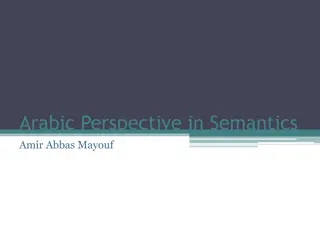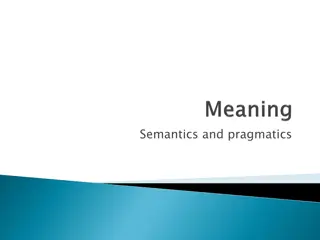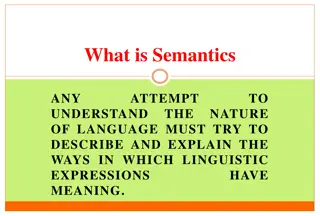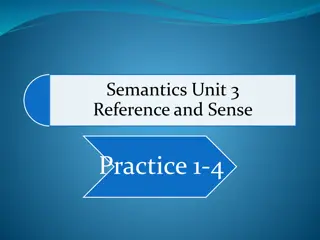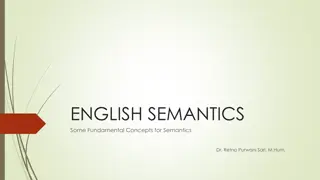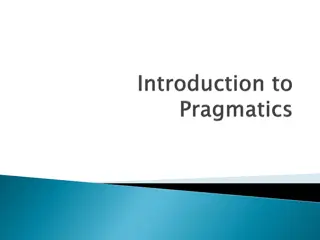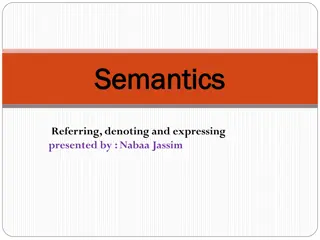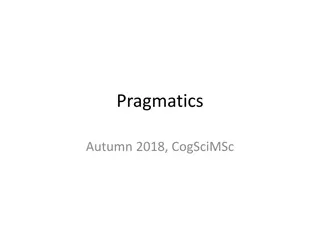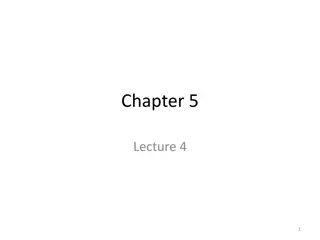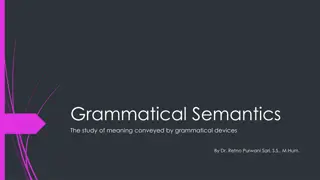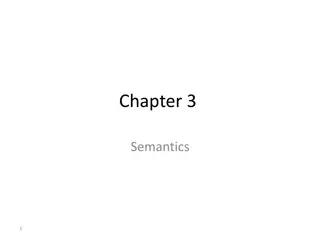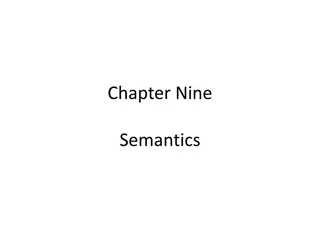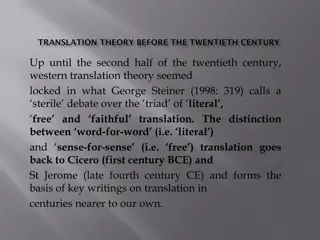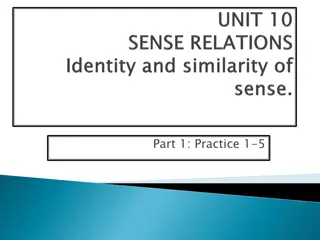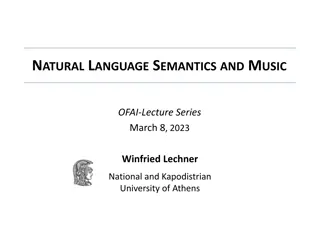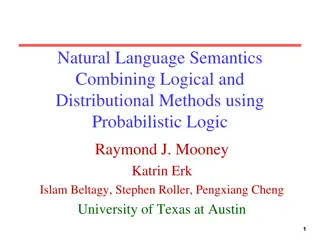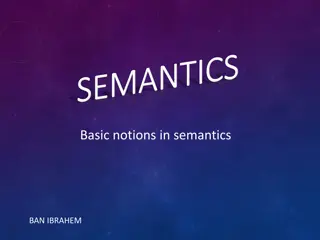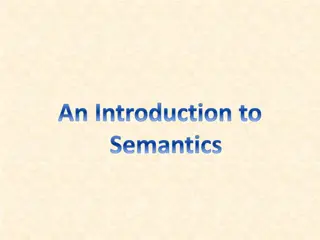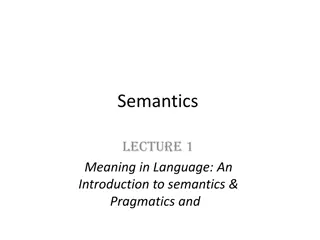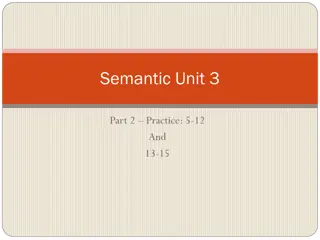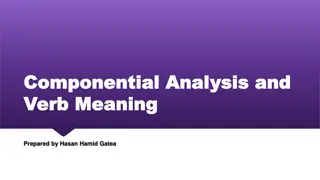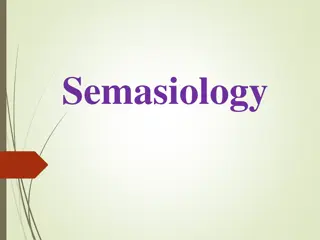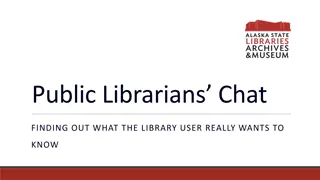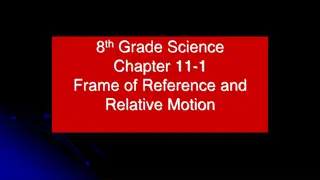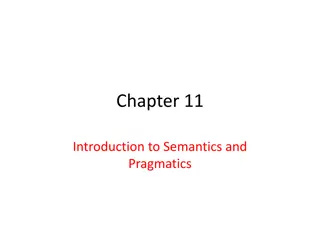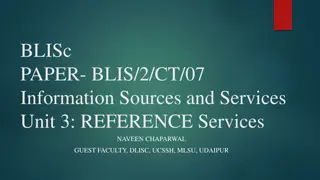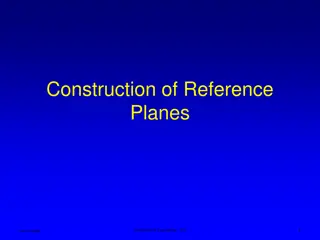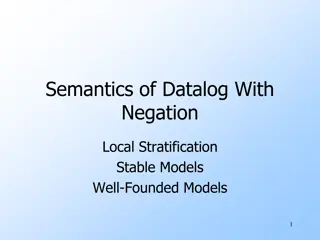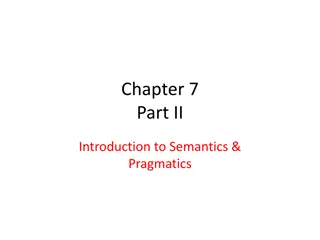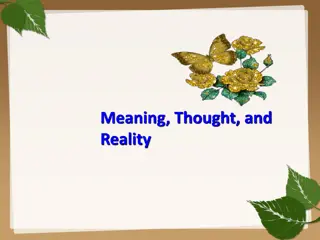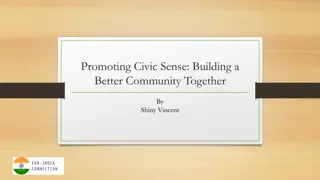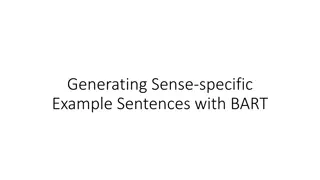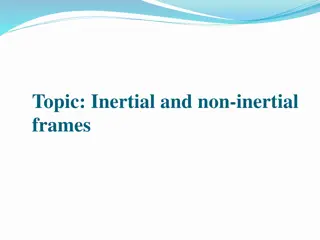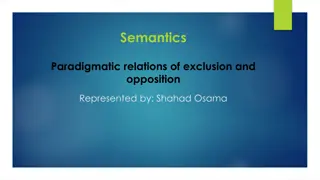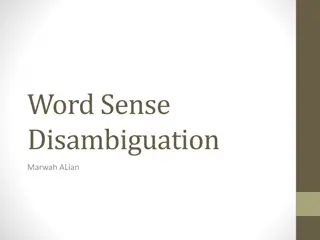Understanding Semantics: Meaning, Reference, and Sense
Explore the intricate world of semantics through an analysis of meaning, reference, denotation, connotation, and the classification of meaning by G. Leech. Delve into the concepts of conceptual and associative meanings, and understand the importance of sense in expressions. Learn how connotations play a significant role in shaping the communicative value of words, with examples of positive and negative connotations.
Download Presentation

Please find below an Image/Link to download the presentation.
The content on the website is provided AS IS for your information and personal use only. It may not be sold, licensed, or shared on other websites without obtaining consent from the author. Download presentation by click this link. If you encounter any issues during the download, it is possible that the publisher has removed the file from their server.
E N D
Presentation Transcript
Semantics REFERENCE & SENSE
Meaning One concern of Semantics is the analysis of meaning
Meaning: G. Leech British linguist G. Leech classified meaning into: CONCEPTUAL MEANING ASSOCIATIVE MEANING.
Meaning: G. Leech CONCEPTUAL/DENOTATIVE MEANING refers to literal use of the word results different basic experience of the external world
Meaning: G. Leech ASSOCIATIVE MEANING results different associations with the conceptual meaning MEANING /CONNOTATIVE
Reference and Sense The SENSE of an expression is its indispensable hard core of meaning.
SENSE is prototypical The SENSE of a is prototypical The QUEEN has fallen off the TABLE.
Connotation Sense, reference and denotation are three aspects of what is commonly conveyed by the loose term meaning .
Connotation CONNOTATION names those aspects of meaning which do not affect a word s sense, reference or denotation, but which have to do with secondary factors such as its emotional force, its level of formality, its character as a euphemism, etc. Police officer and cop , for example, have very different connotations, but similar denotations
Connotation Connotative meaning is the communicative value that an expression has by virtue of what it refers to, over and above its purely conceptual content.
Connotation Positive and Negative Connotations Words may have positive or negative connotations that depend upon the social, cultural, and personal experiences of individuals.
Connotation words childish, childlike and youthful have the same denotative, but different connotative, meanings. childish and childlike have a negative connotation, as they refer to immature behavior of a person. Whereas, youthful implies that a person is lively and energetic.
Connotation Connotative meaning of an expression can vary from age to age, from society to society, and from individual to individual. ,
Meaning: G. Leech Associative meaning into: CONNOTATIVE SOCIAL THEMATIC REFLECTIVE COLLOCATIVE , AFFECTIVE
Meaning: G. Leech SOCIAL MEANING is the meaning which an expression conveys about the contexts or social circumstances of its use.
Meaning: G. Leech SOCIAL MEANING chiefly includes stylistic meaning of an utterance. It is the formality of the expression. -mother (formal), mom (colloquial), mama (child s language) -dollar (neutral) buck (slang)
Meaning: G. Leech Affective Meaning: The level of meaning that conveys the language user s feelings, including his attitude or evaluation in shaping his use of language is called affective meaning or emotive meaning. Ex. Politician---statesman
Meaning: G. Leech Reflective Meaning: is the meaning which arises in cases of multiple conceptual meanings, when one sense of a word forms part of our response to another sense. It is the product of people s recognition and imagination. She has a shiner.
Meaning: G. Leech Reflective Meaning: is the product of people s recognition and imagination. He took the drugs. Enjoy yourself.
Meaning: G. Leech Collocative Meaning: is the associations a word gets because of the meanings of words which tend to occur in its linguistic context. fast reading/friendship/colour/road/car have a fast; a period of fasting
Meaning: G. Leech Collocative Meaning: Fast has such collocative meanings as quick moving, capable of high speed, firmly fixed, or abstaining from food for a time
Meaning: G. Leech Thematic Meaning: is the meaning arising out of the way in which the writer or speaker organizes his message is called thematic meaning. Tomorrow I plan to have an outing.
Reference and Sense The notions of sense and reference are central to the study of meaning.
Reference and Sense The idea of reference is relatively solid and easy to understand.
Reference and Sense.. The sense of an expression can be thought of as the sum of its sense properties and sense relations with other expressions.
Connotation Examples brat and child toilet and rest room country town and regional centre underprivileged area and slum mutt and dog doctor and quack incident and accident
Literal vs Non-literal All human languages have the property of productivity. This is simply the fact that the vocabulary of any given language can be used to construct a theoretically infinite number of meanings, by varying the ways in which the words are combined.
Literal vs Non-literal Examples The novelist has seen the turkey. A novelist has eaten the turkey. A contemporary novelist has seen a turkey. The novelist has seen a passing turkey. *A turkey has eaten a passing contemporary novelist.
Literal vs Non-literal Meanings in those examples are COMPOSITIONAL. This is to say that the meanings of sentences are made up, or composed, of the meanings of their constituent lexemes. We understand novel sentences because we understand the meanings of the words out of which they are constructed. THE MEANING IS LITERAL
Literal vs Non-literal Non-compositional (non-literal) meaning on the other hand does not emerge from the meaning of the constituent lexemes. Kicked the bucket thrown in the towel The phrase Kicked the bucket, then, is not compositional, since its overall meaning, to die , does not derive from the meanings of its lexemes, kicked and bucket
QUESTION In the following sentences, which of the highlighted expressions can be considered compositional, and which are idioms? Do any belong to some third category? Stop dragging the chain: we ll never get there. We ve run out of time, so we ll have to wrap things up. If you keep on making that noise I ll go through the roof. After the delay the plane took off as normal. I ll take twenty per cent off the price. This is a nice and hot cup of tea. My hands are lovely and warm. Try and get a better deal next time. Hello down there!
Collocation You shall know a word by the company it keeps. Buxom lass Blond hair Glooomy weather Fancy dress What do all these phrases have in common? The obvious answer is that they are used in combination or arrangement pretty frequently. (attractive woman) (fair (yellow)hair) (depressing weather) (unusual costume)


